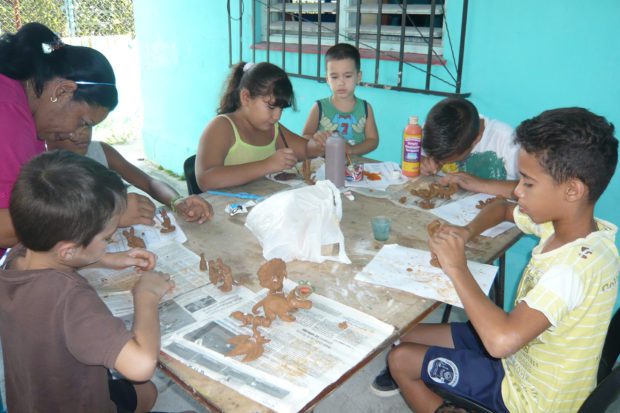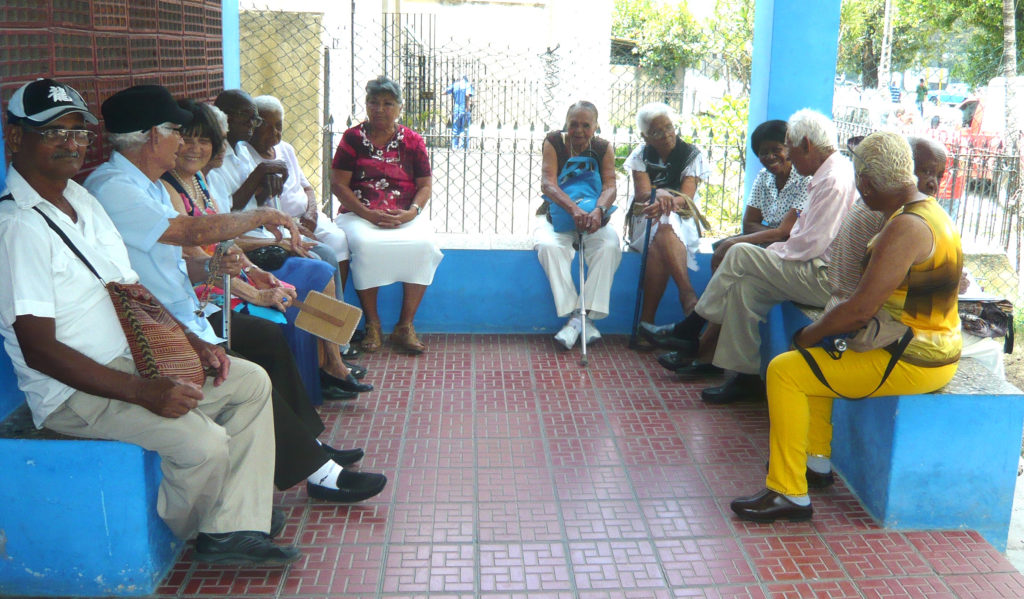
You might be saying, “Wait a minute; the UN General Assembly vote on the blockade this year takes place in early November, and the deadline for this issue of the Community Alliance was mid-October. How could you possibly know?”
Of course, it will pass. The only question is whether any countries other than the United States and Israel will vote against this resolution.
Since the resolution was introduced in 1992, UN member states have annually approved it by an overwhelming margin. In the most recent vote, 184 countries voted that the blockade must end, whereas two voted to maintain it; there were three abstentions.

On Nov. 3, there will again be a UN vote in the General Assembly on the resolution regarding the “necessity of ending the economic, commercial and financial blockade imposed by the United States of America against Cuba.”
The resolution criticizes the United States for its economic embargo of Cuba, saying the embargo violates the UN Charter and international law, and calls for the embargo to be repealed.
For 30 years, the United States has been ignoring the almost unanimous vote of the UN General Assembly.
Of course, the United States will ignore this year’s vote despite the fact that even its closest NATO allies recognize the blockade as a violation of international law and as unilateral economic coercive actions that amount to an act of war, effectively waging siege warfare against a country that represents no threat to the United States.
Apparently, the United States has not given up on the desire to create shortages and suffering in an attempt to promote dissatisfaction in Cuba. It’s not an “embargo,” which would mean that the United States simply refuses to trade with Cuba. It’s a unilateral extraterritorial economic coercive measure whereby the United States threatens and punishes enterprises in all countries it can reach if they attempt to trade with Cuba.
Some of the most egregious efforts:
- Pressuring the Bank of Ireland to stop handling Cuba’s accounts at a time when Cuban medical volunteers were in West Africa fighting Ebola. It was many weeks before Cuba could figure out an alternative method of getting them funds even for living expenses.
- As Covid began damaging and killing people worldwide, the U.S. corporation Vyaire Medical purchased IMT Medical and Acutronic, makers of ventilators, then announced that they would cut all commercial links with Cuba, so that Cuba could no longer purchase ventilators.
- Again, at the start of the Covid pandemic, Jack Ma, a Chinese entrepreneur and founder of Alibaba, sent a donation of masks, rapid diagnostic kits and ventilators to 24 Latin American countries. The shipment to Cuba was blocked by the United States, which threatened the shipping company with sanctions under the Helms-Burton Law, which establishes an economic, commercial and financial blockade against Cuba. The shipment never arrived.
- Most recently, cryptocurrency company Bittrex has been fined $29 million for allowing Bitcoin transactions in Cuba and other countries.
The United States carries out siege warfare against Cuba. The United States pressures other governments, banking institutions and companies throughout the world, as well as obsessively pursuing any sources of hard currency transactions for Cuba. The intention is to cause an economic collapse. This is considered an act of war by international law.
Bringing about hunger, desperation and overthrow of the government. Here is the infamous Mallory memo from April 6, 1960, written by Assistant Secretary of State for Inter-American Affairs Lester Mallory. It states the original, uncharging, unvarnished reasons for the decision to blockade Cuba.
“The only foreseeable means of alienating internal support is through disenchantment and disaffection based on economic dissatisfaction and hardship.
“It follows that every possible means should be undertaken promptly to weaken the economic life of Cuba. If such a policy is adopted, it should be the result of a positive decision that would call forth a line of action which, while as adroit and inconspicuous as possible, makes the greatest inroads in denying money and supplies to Cuba, to decrease monetary and real wages, to bring about hunger, desperation and overthrow of [the] government.”
When U.S. government sources say that the welfare of the Cuban people is a concern and that their motivation is to protect human rights, no one believes this cynical and dishonest pretext.
What best illustrates the real motivations of the U.S. government is its conduct during the Covid-19 pandemic. When the international community called for compassion and cooperation, the United States decided to take advantage of the opportunity to strengthen the blockade, adding 243 additional measures by executive action, making it more difficult for Cuba to obtain medicines, medical equipment and supplies, and materials for the production of vaccines and medicines.
The additional blockade measures put in place by Trump have been maintained by the Biden administration, despite campaign promises to the contrary.
Cuba does not belong on the U.S. terrorist list. As Trump was leaving office, his regime placed Cuba on the U.S. List of State Sponsors of Terrorism, which creates even greater difficulties for transactions and financing.
What are the pretexts for placing Cuba on this list? Assata Shakur is one pretext. Shakur was a U.S. political prisoner who was granted asylum by Cuba in 1984 after she experienced COINTELPRO persecution and prosecution.
Another is that Cuba supports the elected government of Venezuela.
Also, after the Havana peace talks between the Colombian government and ELN (National Liberation Army) rebels failed, Cuba followed the international agreements regarding all negotiating parties, permitting the ELN representatives to remain in Cuba until safeguards for their return to Colombia were put into place.
Rather than being evidence of “terrorism,” these actions are evidence of the ethical nature of Cuba. A more pragmatic, less idealistic state would have treated Shakur and the ELN representatives as bargaining chips. It is to Cuba’s credit that even under the extreme conditions created by the pandemic, natural disasters such as Hurricane Ian and the blockade, it has refused to make deals with their lives.

